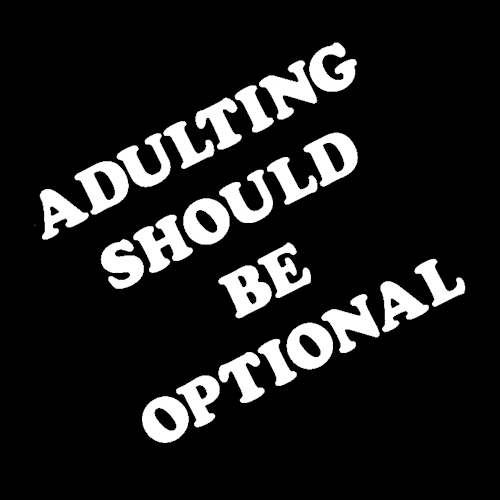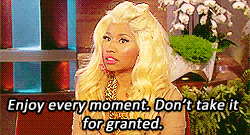11 Reasons The Guy You're Talking To Might Not Want To Commit
Sometimes they just want to be single.
Being in a relationship is difficult. There are a number of things you need to be aligned on with your partner in order to commit, and oftentimes there are smaller details that get overlooked because they aren't the most obvious. Here are 12 reasons the guy you're talking to doesn't want to commit:
1. They lack maturity
Some men aren't mature enough for a relationship at the moment. But that's OK. While it holds true for some men, maturity isn't necessarily indicative of whether they're single or in a relationship. Though some aren't mature enough to consider getting into a relationship, it is possible for a relationship to actually help them mature.
2. They like being single
For some reason or another, it's his choice, and while there will always be a handful of critics regarding that choice, it ultimately is his.
3. Their priorities are elsewhere
Things like video games or pornography, when over-consumed, can easily drive a wedge into the relationship and even destroy it altogether.
4. They're overly critical of themselves
Sometimes men don't see the great qualities in themselves, and it can even be up-and-down from day-to-day. For whatever reason, there may be something that has gone on that led them to be self-critical.
5. They don't really know what "love" is
"What is love? Baby don't hurt me, don't hurt me, no more."
In all honesty, the definition of love that a man sees at a young age can easily affect his own relationships outside the family he was born into. Maybe he has parents who fight a lot, impacting him to think love means arguing every day, or maybe his parents are very cuddly and show a lot of affection. It impacts what he looks for and wants for himself.
6. They're working on becoming a better person
While it's possible to become a better person during a relationship, it's perfectly reasonable for a man to want to become a better person before entering one because he wants to be at a solid level where he is mature enough to handle it.
SEE ALSO: 13 Thoughts A Man Ponders When He's Single In His Mid-To-Late 20s
7. They have high expectations and standards
Every man will learn through experience what to tolerate or what not to tolerate, and if it drives people away, so be it. He has boundaries that need to be respected, and he will know how to respect those boundaries, too.
8. He hasn't developed his "skill set"
Two important things in a relationship are the ability to cohabitate and be flexible. He'll benefit from knowing how to build things, having done his own chores in the past, and cooking for himself before, say, moving into a house or settling down.
9. He's more into his interests and hobbies
Every person has their own set of interests and hobbies, and those should never go away once you enter a relationship. It could be a matter of bad timing, but you can't convince someone to pay less attention to the things they love and more attention to you. They have to make that decision for themselves.
10. He doesn't trust easily
Trust is key to every successful relationship, and some people trust easier than others. Maybe he's seen through his own life that he's better off keeping his guard up because that's what he has been conditioned to do. It will take a long time for him to truly be vulnerable, and he's going to take his time to best prepare himself for it. Trust is not easy to build, but it's quite easy to destroy.
11. He's focused on his career
He's happy in his job, he performs well at it, great for him. It's something that makes him happy, and the right relationship will make him happy but also give him the platform to balance his own happiness while investing in another person. There's a learning curve involved here, and the more you learn, the steeper the learning curve gets.
A number of these reasons are related to one another, but the overarching theme of being single instead of being in a relationship is that it isn't for everyone at this given moment. It requires a lot of effort, investment, and dedication.
Whether you're in a relationship or not, you're learning about what you need to do to become more ready for one, or maybe you find out about the kind of person you are based on your current lifestyle. A man who chooses to be single realizes there are things that may need changing before he commits to someone, or that there are things to learn that he just hasn't seen yet.
Follow Swoon on Instagram.






































If Someone Checks Your Racism You're Not The Victim Here, So Here Are Some Tips For Not Acting Like It Either
The way you react to being accused of racism can have a bigger affect than the ignorance in the first place, so here's how to respond in those situations.
Psychology Today defines a "Microaggression" as "everyday verbal, nonverbal, and environmental slights, snubs, or insults, whether intentional or unintentional, which communicate hostile, derogatory, or negative messages to target persons based solely upon their marginalized group membership." To put it more plainly, its anything discriminatory that isn't 100% over.
With that in mind, it may seem to some that literally, everything is off limits to joke about nowadays. While the '90s and early 2000s was full of fake acceptance cloaking heavily problematic stereotypes, assumptions, and misconceptions about marginalized groups, it's left us with a heavy "us vs. them" mentality, with "regular people" on one end and "snowflakes" on the other.
"Snowflake" is a relatively new term commonly employed by conservatives to mock the emerging atmosphere of political correctness, "safe spaces" and the uphill battle minorities face in pursuit of equal rights.
The reason for this, among other things, is the fact that the emerging adult community was raised in the above mentioned standards that were upheld in the '90s and early 2000s. Therefore, we're left with people who think they can, and should get away with anything so long as they aren't waving a Nazi flag or sporting white sheets over their heads.
Studies confirm that many people harbor unconscious racial biases, whether or not they would classify as a full-blown racist.The thoroughly depressing reality of that aside, that along with white guilt, or a sense of shame white people may experience considering the demographic's historical treatment of people of color and other minority peoples, can make racial issues exceptionally difficult to talk about.
With lack of communication comes inevitable ignorance of how a comment, action or opinion may be considered offensive to a marginalized person, leaving many social interactions with both parties angry, sad or even fearful from its outcome.
Ignorance is often not the explicit fault of the ignorant person. However, the problem with today's society is not solely ignorance, nor that people are too sensitive all of a sudden.
For the first time in the nation's history, the social climate allows minority people to be emboldened enough to call people out on their racism. This is a massive societal win for many marginalized groups who no longer have to stand in as a token for their demographic so corporations can meet their diversity quota.
Although, it was clearly not something the bulk of the nation was prepared for.
With the mixture of this newfound liberation for minority groups, an ignorance that has spanned centuries and how difficult people find it to communicate about racial issues, we have the perfect storm for someone to go on the defense instead of treating the accusation of racism as a learning experience.
Thankfully, the concepts behind responding in an appropriate way are pretty straight forward.
1. You Are Not The Victim Here.
There are too many people who get accused of saying something offensive, then immediately go on the defensive. This gets everyone absolutely nowhere.
It probably really sucks to feel like someone thinks you're a terrible person, especially when you didn't realize you were in the wrong. Considering America's history with racism, being singled out for contributing to that is going to bring up a lot of feelings. So naturally, people may turn to arguing and making excuses for the terrible thing they did or said.
The pro-level of this reaction is when a person points out something ignorant or discriminatory, then the accused starts crying.
This immediately takes the attention off of the victim and onto the offender, because the offender then needs to be consoled before any progress in the interaction is made.
Any of these reactions, or feeling that someone is being "mean" to you by checking your ignorance, is a product of white privilege. So, if you care about being a good ally to the marginalized section of our community, its best to save the crying or yelling as a last resort.
2. Apologize First.
Do not pass go, do not collect $200.
Apologizing first, even if you don't understand what you've done, keeps all doors of communication open so you can dig deeper into the situation a little more.
Even if you don't feel remorse—out of ignorance, stubbornness or skepticism—apologizing first acknowledges that they are a human that deserves respect which you've just violated somehow.
Here our pre-school days come in handy, as we can all do well to "treat other's like we want to be treated". Think on how you'd feel if someone disrespected you in the middle of your day, then that empathy should be applied to whomever you've hurt.
If the accused responds in any way besides this, the opportunity for fixing things is annihilated, and the hurt that you both are feeling has no chance of being relieved. Granted, after an apology has been issued and a conversation follows, you might still feel that you're in the right or feel bad in general. However, you still did your best to alleviate some of their discomforts, maintained the cordiality of the relationship and know how to avoid similar situations in the future.
3. Prove To Yourself And Them You're Not A Bad Person
I'm multiracial but look white as hell. I was ignorant as hell as a kid. I've been there where something you said offended when it was clearly not your intention. In fact, in the case of microaggressions, the intent is often not to offend.
So, now it's your job to do your best to prove to them and yourself that you're not a bad person.
The only way to accomplish this is by listening.
Listening to why they were offended, why its a problem and asking questions about the reasons behind it or how to avoid repeating the mistake in the future is the key to growing. And consequentially you might get to learn something that day, which everyone should be thankful for.
Facing these interactions humbly and with an open mind encouraged growth as well as learning, so even though you may feel like crap, this opportunity is definitely a good one.
4. Follow Through
After the badness has happened and been pointed out, an apology has been made and a conversation has been had, the effect of the situation should not end there.
If you're still a little unclear on the offense or want more information, take it upon yourself to watch a Ted Talk or two to keep the conversation going internally.
Then, it's important to actually apply what you've learned to your thoughts, words, and actions. Once it's been pointed out its much easier to identify discriminatory lines of thinking, reconsider previous opinions and even reevaluate how ignorance might be applied to other areas that you hadn't thought of.
If you feel they might still be upset, especially if they're someone you run into often or work with, a check in can go a long way, too. A simple "Hey, I just wanted to make sure you're still OK after the other day" can easy any resentment that might be lingering. Even if that still doesn't fix things, you know you've done everything in your power to make it right.
Even attempting to follow these steps can make all the difference in developing the quality of our interactions a safer society for everyone. Although this may seem like inconsequential in the grander scheme of things, change is truly inspired one baby step at a time, so don't knock it till you try it.